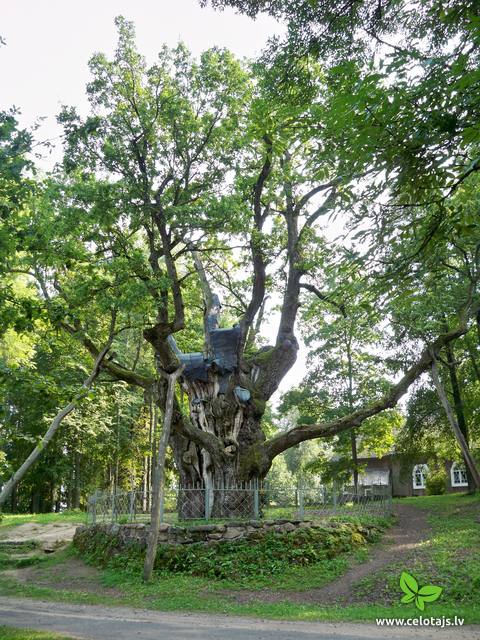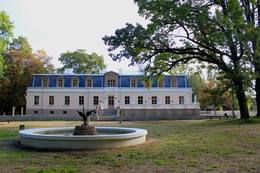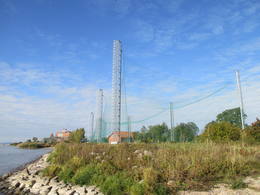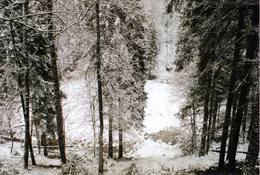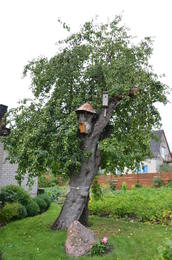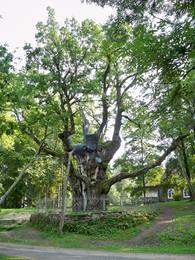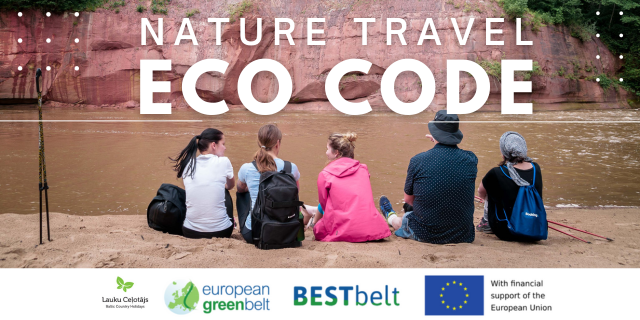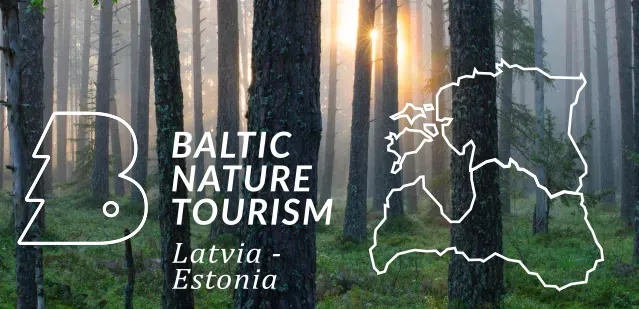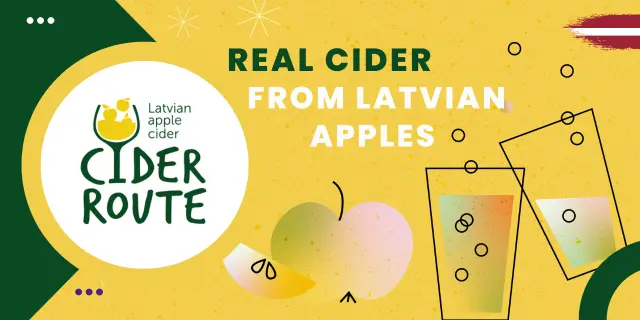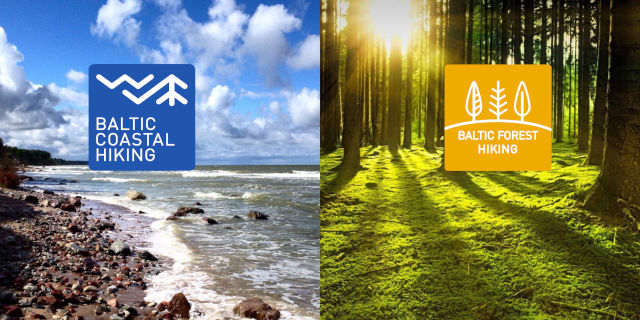Nature objects in Lithuania
What's special about the nature in Lithuania?
The Curonian spit - a sandy, desert-like stretch of land between the Baltic see and the Curonian Inlet, teh hilly landscapes of the Žemaitija region, the blue mirror labyrinths of the lakes in teh Aukštaitija region, the pine forests in teh Dzūkija region, the curves of the Nemuna river valley, and the many regional nature parks, created not only to protect the nature but also for people's recreation and interest - these are the nature values attracting guests of Lithuania.
Act responsibly - follow the Green advice!
| Overview | Details |
|---|---|
|
Lithuania
Veisieji regionalais parksVeisieji reģionālais parks (Veisiejų regioninis parkas) veidots (1992.g.) Sudavas augstienes (Sūduvos aukštuma) ainavu, bioloģiskās daudzveidības un kultūras pieminekļu aizsardzībai. Viena no parka bagātībām ir ezeri, kuru iegarenās formas liecina par ledāja darbības rezultātu. Pēdējā apledojuma laikā šeit atradusies ledāja mala. Ezerus (kopā – 37) ieskauj lielāki meža masīvi uz kontinentālām (iekšzemes) kāpām, kas piemēroti atpūtai dabā, dabas vērošanai, ogošanai un sēņošanai. Parkā ir iekārtotas peldvietas, kur patīkami gremdēties vasaras tveicē, izveidotas dabas takas, bet mazās upītes, kas savieno ezerus, ir piemērotas braucieniem ar kanoe laivām. Veisieji reģionālā parka teritorijā ir liela augu un dzīvnieku daudzveidība. Šeit tiek aizsargātas arī tādas retas sugas kā Eiropas kokuvarde Hyla arborea (parka simbols), purva bruņurupucis Emys orbicularis, dažādas orhideju sugas u.c. |
|
|
Lithuania
The Dunes of Courland National ParkThis is the only place in the Baltic States where there is such a vast territory of open-air sand dunes which still change the local terrain very actively because of the wind. The only Sea Museum and Dolphinarium in the Baltic States can be found here.
|
|
|
Lithuania
BrändeNahe der Beerkopfdüne ist im Frühling 2006 „ein Brand der Jahrhunderte” gewessen. Es wurde der hundert Jahre alte Wald in der Fläsche von 235h ausgebrannt. Ein Pfad mit Holzbelag. |
|
|
Lithuania
The Zagare Regional ParkŽagare has long since been known for a special type of cherries. There are various varieties which only differ in terms of when they are ripe and productive. There are different types of trees. The cherries grow at nearly home, and that is an exclusive symbol of Žagare. |
|
|
Lithuania
The Pajuris Regional ParkThe territory is established in order to protect the dunes and the seashore habitats. There are beautiful beaches and wooded dunes, and the paved Klaipēda–Palanga bikeway trails through the park, which is worth travelling at full length. |
|
|
Lithuania
Botanikas takaKaut arī Augštaitijas nacionālo parku uzskata par floristiskā ziņā ļoti bagātu teritoriju, šī ir vienīgā vieta, kur varam iepazīt augu valsts bagātību. To īstenot palīdz takas malās izvietotie informācijas stendi. 3,8 km garās lokveida takas sākums ir meklējams Palūšē, Lūšu (Lūšiai) ezera galējā austrumu punktā. Taka ved gar ezera krastu, mežainām kāpām, nelielu strautu ielejām un pa purvāju. Nenomaldīties palīdz krāsu marķējums uz koku stumbriem. |
|
|
Lithuania
HexenhügelEine große parabolische Düne mit einer Ausstellung der Holzskulpturen unter freiem Himmel, die der litauischen Mythologie gewidmet sind. Die Skulpturen haben litauische Meister der angewandten Kunst angefertigt. |
|
|
Lithuania
The Trakai Historical National ParkThis park was established mostly to protect a wide range of cultural and historical objects such as the Trakai lake castle, the ancient Trakai cloister, the Užutrakai castle, the Bražole castle hill, the heritage of ancient local tribes, etc.
|
|
|
Litauen
The Kurtuvėnai Regional ParkThis is a small area with lots of different terrains – high hillocks, distinct river valleys, thermal streams, continental dunes, etc.
|
|
|
Litauen
Regionalpark AukstadvarisEin mit Wäldern und Seen reiches Gebiet im Nordteil der Dzūkija-Anhöhe. Das Täufelsbeet (Velnio duobė) ist eine bis 40 m tiefe und 200 m breite trichterförmige Grube, die Entstehung der mit einer Tätigkeit eines urzeitlichen Gletschers verbunden ist. |
|
|
Litauen
Nationalpark DzukijaGegründet für den Schütz des von Wäldern reichtesten Gebietes Lituens und der mit der Bewirtschaftung des Gebietes verbundenen Volkstraditionen. |
|
|
Litauen
ÄLTESTER LITAUISCHER APFELBAUMDer älteste Apfelbaum in Litauen ist als botanisches Erbe geschützt. Dabei handelt es sich um einen Holzapfel, den einzigen geschützten Apfelbaum in Litauen. |
|
|
Litauen
GUTSPARK STELMUZĖDer Park des Gutes Stelmužė wurde Mitte des 18. Jh. südlich vom See Stelmužė angelegt. Von allen Seiten führen gewundene Pfade zu der auf dem Hügel stehenden Jesus-Kreuz-Kirche. In der Baumschicht dominieren Linden, Ahorn, Ulmen, Birken, Fichten, Eschen, Kiefern. Am Fuß des Hügels befinden sich der Glücksbrunnen und man kann die Eichenallee entlang schlendern. Prunkstück ist aber zweifellos die Stelmužė-Eiche, die älteste und dickste in Litauen wachsende Eiche und sogar eine der ältesten Eichen in Europa. Man vermutet, dass der Baum etwa 1500-2000 Jahre alt ist, der Stammdurchmesser beträgt 3,5 m (um den Stamm zu umfassen benötigt am 8 bis 9 Leute), die Höhe 23 m. |
|
